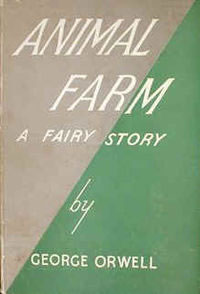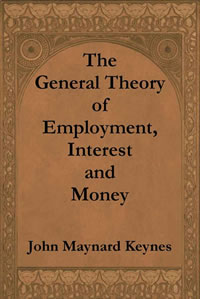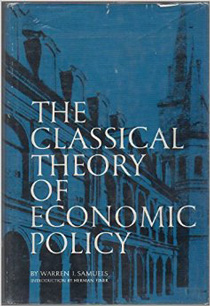Professor of Economics, 1967–2007
Animal Farm: A Fairy Story (1945), by Eric Arthur Blair, a.k.a. George Orwell (1903-1950). Surprised? Nay, shocked? Don’t be, for comedy often proffers the best understanding of human nature, politics and power. The force of Animal Farm’s last sentence, “The creatures outside looked from pig to man, and man to pig, and from pig to man again: but already it was impossible to say which was which,” has rarely been equaled, and has helped me to beware ideology. I consider myself to be a ‘radical eclectic,’ that is, I truly believe in eclecticism. When a student would tell me, “I can’t tell what you are,” I silently regarded it as a compliment.
The General Theory of Employment, Interest and Money (1936), by John Maynard Keynes (1883-1946). Down in The Pit, ages ago, and before her mid-term exam, one of my students told me, “Professor Botwin, I’ve spent more time in bed with Samuelson (Nobel Laureate Paul A.) than with any other man this semester.” Well, I have spent more time with this greatest-economics-book-of-the-20th-century, reading, analyzing, criticizing, defending this lauded and condemned book, than any other. It is a macro book built on micro foundations, and has affected our economic policy, both then and now, in an unmatched fashion. Samuelson described this work as follows: “It is a badly written book, poorly organized; any layman who, beguiled by author’s previous reputation, bought the book was cheated of his 5 shillings. It is not well suited for classroom use. It is arrogant, bad-tempered, polemical, and not overly generous in its acknowledgements. It abounds in mares’ nests and confusions… In short, it is a work of genius.”
The Classical Theory of Economic Policy (1966), by Warren J. Samuels (1933-2011). I’ve had three mentors in economics: Warren J. Samuels at the University of Miami and Oskar Morgenstern and Mancur Olson at Princeton University, but primus inter pares among them was Samuels. “Uncle Warren,” as he was known to my children, was my teacher, advisor, confidant and inspiration. Samuels was the last of the great Institutional economists, and this work provides proof that “it isn’t what you don’t know that gets you in trouble, but what you know that isn’t so” regarding the policies of our economic fathers, and their projections for the future. As J. B. Bury wrote in 1932, “But if we accept the reasonings on which the dogma of Progress is based, must we not carry them to their full conclusion? In escaping from the illusion of finality, is it legitimate to exempt that dogma itself? Must not it, too, submit to its own negation of finality? Will not that process of change, for which Progress is the optimistic name, compel “Progress” too to fall from the commanding position in which it is now, with apparent security, enthroned? …A day will come, in the revolution of centuries, when a new idea will usurp its place as the directing idea of humanity. Another star, unnoticed now or visible, will climb up the intellectual heaven, and human emotions will react to its influence, human plans respond to its guidance. It will be the criterion by which Progress and all other ideas will be judged. And it too will have its successor.”
 Animal Farm: A Fairy Story (1945) by George Orwell
Animal Farm: A Fairy Story (1945) by George Orwell
 The General Theory of Employment, Interest and Money (1936) by John Maynard Keynes
The General Theory of Employment, Interest and Money (1936) by John Maynard Keynes
 The Classical Theory of Economic Policy (1966) by Warren J. Samuels
The Classical Theory of Economic Policy (1966) by Warren J. Samuels